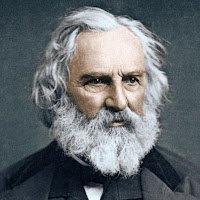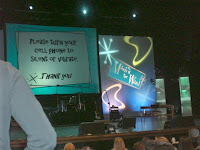I Heard the Bells on Christmas Day
Henry Wadsworth Longfellow is known as one of America's greatest poets. He was born in 1807, and as a young boy he began school when he was 3 yrs old. He was reading classic literature at the age of 6, and by the age of 19 he was a college professor. He got married in 1831 and by 1834 he was known as one of the most respected scholars in our country. Henry and his wife moved to Massachusetts so he could teach at Harvard. But soon after the move, his wife became sick and she died.
Henry was devastated. He focused on his teaching as he dealt with his grief. It took him 7 long years to get over the tragedy enough to want to remarry, but remarry he did. Henry and his new lovely wife welcomed 5 children and it was a happy time. In 1861, after 18 years of marriage, another devastating event fell upon Henry's life. While his wife was lighting a match, her clothes caught fire and she burned to death.
While he was still in dark despair over the loss of his second wife, the American Civil War began. He hated the war. He prayed for God to stop the madness of American fighting against American. But in 1862, his oldest son Charles, joined the Union Army against his father's wishes. Henry was informed by a letter he received March 14th, 1863, it read, "I have tried hard to resist the temptation of going without your leave but I cannot any longer", he wrote. "I feel it to be my first duty to do what I can for my country and I would willingly lay down my life for it if it would be of any good." Eight months later, in November 1863, Charles was sent home severely wounded. He tended to his son's wounds, as he watched other soldiers return to their families, some wounded, some dead.
On Christmas Day of 1863, Longfellow picked up his pen again, but he penned out of rage this time. As he listened to the church bells ring, he wrote the poem "Christmas Bells". It tells of his utter sadness at hearing the bells on Christmas and that "hate is strong and mocks the song of peace on earth, good will to men". Even though most of the song is dark and solemn, he does end the poem with the truth that we worship a living God and that good will win in the end.
Longfellow's poem was put to music ten years later in 1872. It has since been a beloved song, especially in times of sadness, war and tragedy. We have hope because of the love, joy, comfort and peace that Jesus' birth offers us.







Comments
Post a Comment